Если упорно работать, однажды наступает тот долгожданный момент абсолютной ясности, когда ты уверен(а), что используешь Past Perfect правильно, когда ясно отличаешь Present Perfect от Past Simple. Смотри внимательно и запоминай, лис специально для тебя собрал все грамматические времена английского в одной публикации.
И не забудь пройти упражнения в конце урока!
English Grammar – Webinar
To horilka – употреблять горилку (не ищи в словаре, поверь нам на слово). Here are Fox’s confessions in all 12 tenses!
Present Simple
Настоящее простое
Subject + V(-s, -es) / Do (does)
- Affirmative: I horilka every day.
- Negative: I don't horilka every day.
- Interrogative: Do I horilka every day?
Time markers: every day/ week / month / year, always, usually, often, sometimes, never.
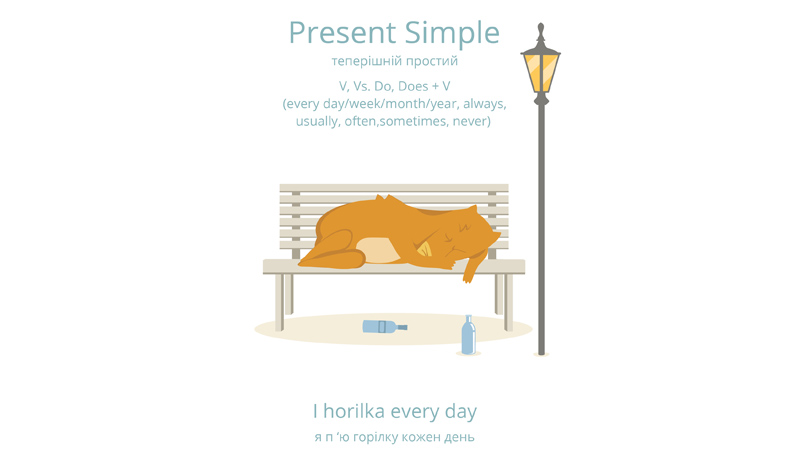
Present Continuous
Настоящее длительное
Subject + to be (am / is / are) V(-ing)
- Affirmative: I'm horilking now.
- Negative: I am not horilking now.
- Interrogative: Am I horilking now?
Time markers: now, at the moment.
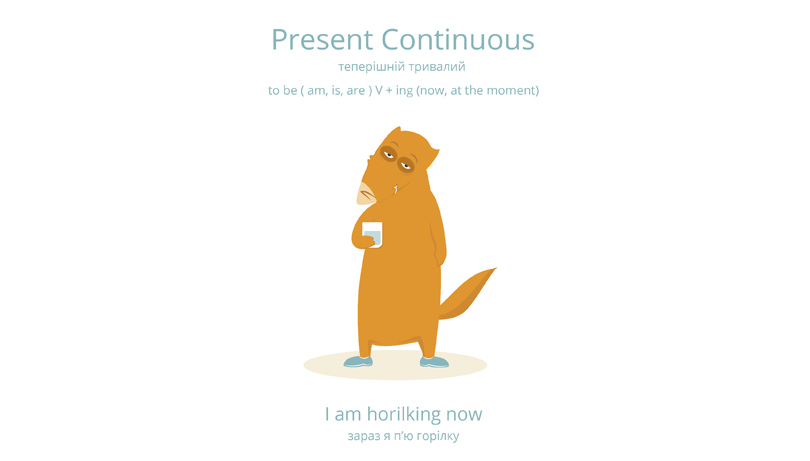
Present Perfect
Настоящее завершенное
Subject + have / has V(-ed, III)
- Affirmative: I have already horilked.
- Negative: I have not horilked yet.
- Interrogative: Have I horilked yet?
Time markers: ever, never, just, already, yet, lately, recently.
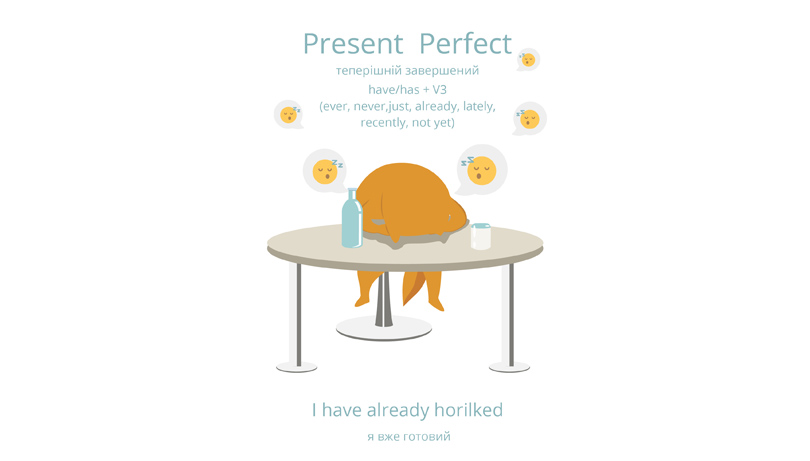
Present Perfect Continuous
Настоящее завершенно-длительное
Subject + have / has been V(-ing)
- Affirmative: I have been horilking for a week.
- Negative: I have not been horilking for a week.
- Interrogative: Have I been horilking for a week?
Time markers: for, since.
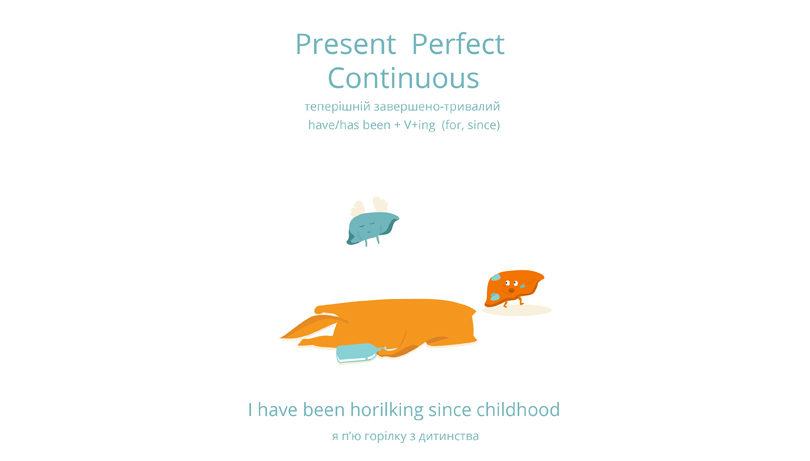
Past Simple
Прошедшее простое
Subject + V(-ed, II) / Did
- Affirmative: I horilked yesterday.
- Negative: I didn't horilkа yesterday.
- Interrogative: Did I horilkа yesterday.
Time markers: yesterday, last week, in 2015.
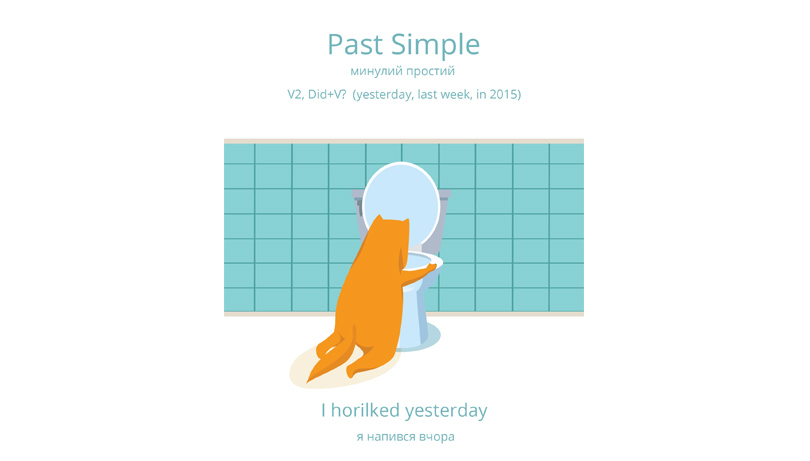
Past Continuous
Прошеднее длительное
Subject + to be (was / were) + V(-ing)
- Affirmative: I was horilking at the moment my wife came.
- Negative: I was not horilking at the moment my wife came.
- Interrogative: Was I horilking at the moment my wife came?
Time markers: when, while, at ... o'clock yesterday.
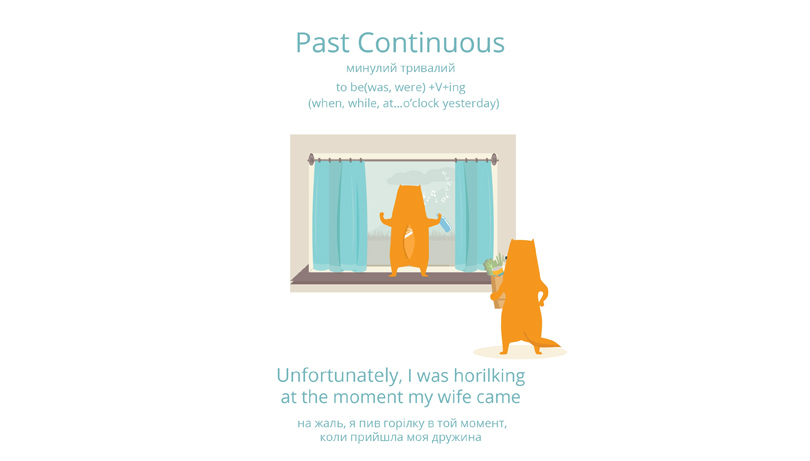
Past Perfect
Прошедшее завершенное
Subject + have / has been V(-ing)
- Affirmative: I had already horilked when my wife came.
- Negative: I had not horilked when my wife came.
- Interrogative: Had I horilked when my wife came?
Time markers: by, just, when, already.
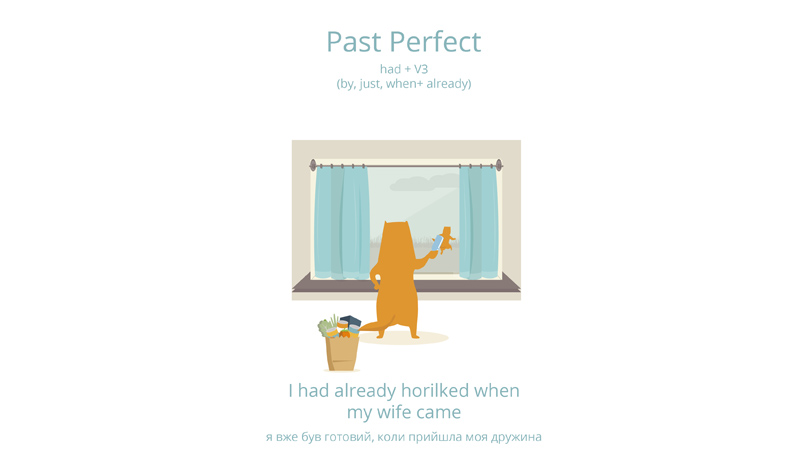
Past Perfect Continuous
Прошедшее завершенно-длительное
Subject + had been V(-ing)
- Affirmative: I had been horilking for about a month when my wife came.
- Negative: I had not been horilking for about a month when my wife came.
- Interrogative: Had I been horilking for about a month when my wife came?
Time markers: when, for.
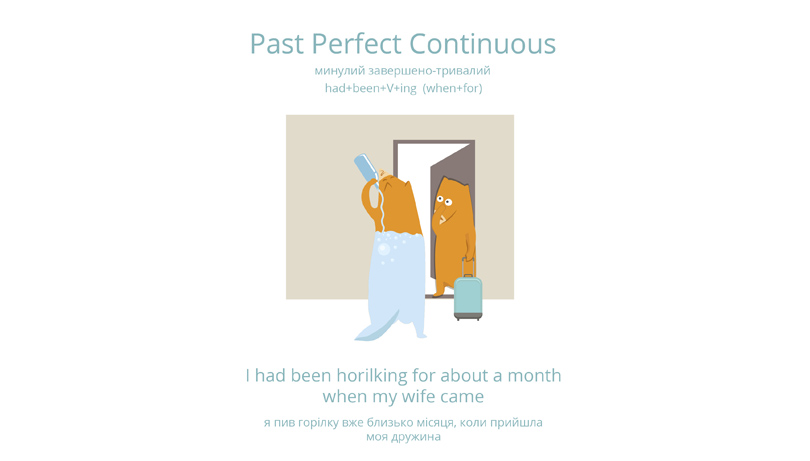
Future Simple
Будущее простое
Subject + will + V
- Affirmative: I will horilka tomorrow.
- Negative: I will not horilka tomorrow.
- Interrogative: Will I horilka tomorrow?
Time markers: tomorrow, next week / year, in a week.

Future Continuous
Будущее длительное
Subject + will be V(-ing)
- Affirmative: I will be horilking tomorrow at 5.
- Negative: I will not be horilking tomorrow at 5.
- Interrogative: Will I be horilking tomorrow at 5?
Time markers: at this moment, tomorrow, at this time.
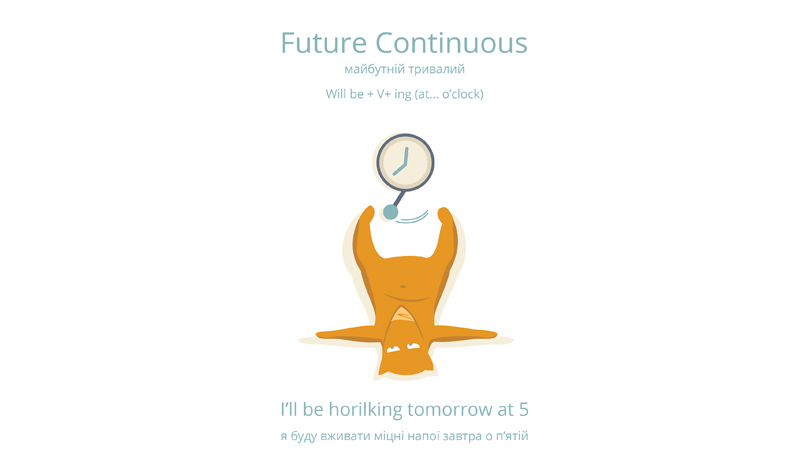
Future Perfect
Будущее завершенное
Subject + will + have V(-ed, III)
- Affirmative: Tomorrow by 5 o’clock I will have horilked.
- Negative: Tomorrow by 5 o’clock I will not have horilked.
- Interrogative: Will I have horilked tomorrow by 5 o’clock?
Time markers: by.

Future Perfect Continuous
Будущее завершенно-длительное
Subject + will + have been V(-ing)
- Affirmative: By tomorrow morning I will have been horilking for a week.
- Negative: By tomorrow morning I will not have been horilking for a week.
- Interrogative: Will I have been horilking for a week by tomorrow morning?
Time markers: by, when + for.
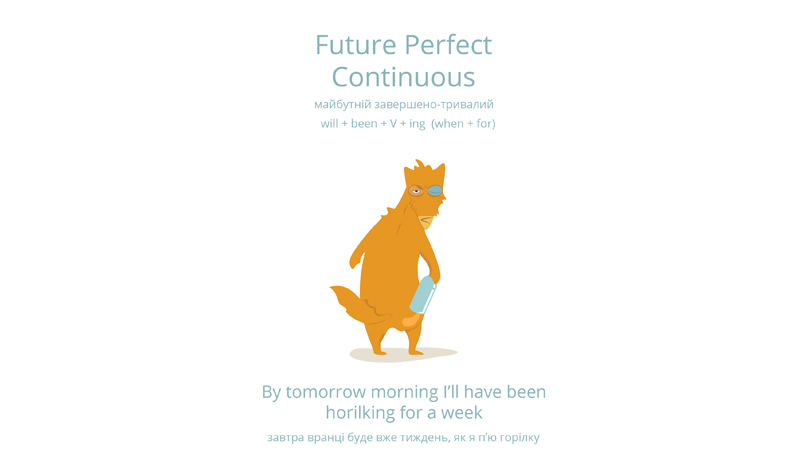
Пройти упражнения можно здесь!


